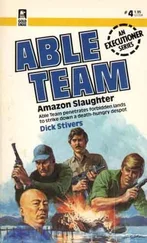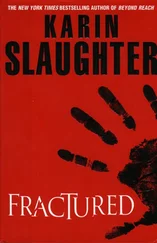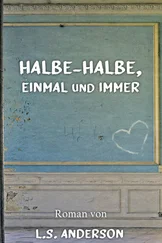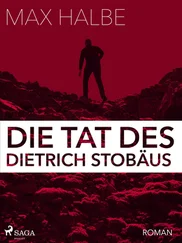Wenck signalled the OKW again that evening:
The 12th Army, and in particular XX Corps which has temporarily succeed in establishing contact with the Potsdam Garrison, is obliged to turn to the defensive along the whole front. This means that an attack on Berlin is now impossible, since we have also ascertained that we can no longer rely on the fighting capacity of the 9th Army. [42] Ibid ., p. 66; Gellermann, Die Armee Wenck , pp. 93–4.
During the night Wenck received the following reluctant acknowledgement of the situation by signal from Field Marshal Keitel:
If the Commanding General 12th Army, in full knowledge of the current situation at XX Corps, and despite the high historical and moral responsibility that he carries, considers continuing the attack towards Berlin impossible…
Wenck now had a free hand to pursue his own plans. [43] Gellermann, Die Armee Wenck , p. 176.
Hitler himself must have realised that the end was near. Having rejected General Weidling’s desperate break-out plan for the Berlin garrison, he sent the following signal to Colonel-General Jodl that evening:
1. Where are Wenck’s spearheads?
2. When will they resume the attack?
3. Where is the 9th Army?
4. Where is it breaking through?
5. Where are Holste’s XXXXI Panzer Corps’ spearheads? [44] Ibid ., p. 177.
TWELVE
12th Army Waits
30 APRIL 1945
At 0100 hours on 30 April Field Marshal Keitel replied to Hitler’s signal of the previous evening with:
1. Wenck’s attack has stopped south of the Schwielowsee. Strong Soviet attacks along the whole of his east flank.
2. Consequently 12th Army is unable to continue its attack towards Berlin.
3. & 4. 9th Army is surrounded. An armoured group has broken out to the west; location unknown.
5. Corps Holste has been forced on to the defensive from Brandenburg via Rathenow to Kremmen. [1] Gellermann, Die Armee Wenck , pp. 97–8; Gorlitz, The Memoirs of Field Marshal Keitel, p. 223.
Later General Wenck sent the following radio message to 9th Army: ‘12th Army now engaged in heavy defensive fighting. Speed up your breakthrough. We are waiting for you.’ This was a clear call for haste, for in fact Wenck’s divisions were only holding on to their positions with difficulty. [2] Lakowski/Stich, Der Kessel von Halbe 1945 , p. 128.
Erika Menze continued her story of the break-out from Halbe:
At dawn on 30 April we could see how many soldiers there were in the crowds ahead of and behind us. Civilians were scattered between all the groups of soldiers, moving along with them. The rumour was that we would come out near Baruth.
In the middle of the woods was a farmstead, that was said to be the Baruth forest warden’s lodge. We went on for hours, forwards, ever forwards. But there was also some firing, even from the treetops. The soldiers had long lost their will to carry on fighting. They also knew that this war had become nonsensical in the government’s final desperation.
Then came some officers, one here, another further off: ‘Where is your weapon?’ ‘Lost in battle!’ Then the soldiers had to take the officers’ carbines and were ordered up front. One of them did not want to follow orders and was sworn at and threatened with a pistol.
It must have been past midday when we came to Luckenwalde. We had to keep moving, though we seemed to be going round in a circle. Shot-up trees, broken-down vehicles, lost or discarded equipment, pieces of clothing and other items were all lying around. Again we saw dead German soldiers. A young girl wearing a steel helmet sat leaning against a tree. One soldier said that she was asleep, but she was dead.
That afternoon we had to cross a railway line that was under heavy fire. We crossed it singly, always during the pauses in the firing. There was another wood on the other side. A shell made a big hole about 15 metres from me, and I looked back in shock.
Some soldiers came crawling out of the white sand uninjured. Then I reached the wood. On the right was an open expanse like a broad road. There were already many foxholes among the tall pinetrees, and two Volkssturm men called out to me. They dug away the sand industriously with their small spades to make enough room for the three of us. It became a little quieter once more.
We had to move on again at dusk. When night came we were already long on our way. I slept while walking, moving along totally exhausted. One of the pair put a piece of Schoka-cola in my mouth from his iron rations. ‘You mustn’t fall asleep, girl, we have to go on!’ the men said.
We reached Märtensmühle and Ruhlsdorf. Women came towards us from the first houses. ‘For goodness sake, you’re still in uniform! Come quickly into the yard and we’ll give you some civilian clothing!’ So the three soldiers became civilians again at the next farm.
On the morning of 3 May the new mayor came and told us to use our common sense and find our way home by the shortest route. [3] Helmut Jurisch in correspondence with the author. Schoka-cola was a form of chocolate containing an energising substance.
Meanwhile in the main group, SS-Lieutenant Bärmann was still pushing on:
At dawn we came to the station for the Kummersdorf Training Area. Again anti-tank guns were everywhere. The station, workshops and fuel depot were on fire. We broke through to the station, the dead remaining where they fell. A couple of lads rolled up a barrel of fuel. We still had five tanks left and each needed its share. One tank commander who had lost his vehicle, appropriated a T-34, marked it with a swastika flag and SS pennant and took over the lead.
We went round the ranges in a big curve and hid ourselves in the woods. A bit of peace at last, but nothing to eat. [4] Tieke, Das Ende zwischen Oder und Elbe , p. 327.
Individual groups were involved in heavy fighting in this area. SS-Captain Lobmeyer reported:
We fought our way across the Kummersdorf ranges, having to deal with some Seydlitz units, who kept pressing us to surrender, but we fought on to the west. More and more tanks and other vehicles had to be blown up and abandoned due to fuel or ammunition running out. [5] Ibid .
As day broke, the last Tigers of 502nd SS Heavy Panzer Battalion moved across the eastern firing range and then crossed over to the western firing range and stopped in the Trebbin Forest north of Schöneweide. There was an industrial railway track on the second firing range, so the wounded were loaded on wagons and towed along to the end of the ranges by a Tiger.
The exhausted troops needed a rest and the various combat teams, all that remained of the original battlegroups, wanted a chance to reorganise. A security screen was established and reconnaissance patrols sent out, which reported back that there was a strong Russian cordon with tanks and anti-tank guns deployed along the line of the Trebbin–Luckenwalde road (Reichsstrasse 101). Once more the fuel tanks of other vehicles were emptied to keep the last Tigers mobile and in action, for which SS-Captain Klust was given a written authority by General Busse.
There was a surprise addition to the group with the arrival of XI SS Panzer Corps’ rearguard, commanded by SS-Major May, who had fought their way through from Halbe along a route to the north of the main body. SS-Colonel Kempin, commander of 32nd SS Panzergrenadier Division who was with the rearguard, later commented:
Before we reached the 12th Army’s rearguard near Beelitz we attacked a Russian artillery position, with the help of some armed women. The guns were aimed to the west and they were unable to bring them to bear on us. We were totally exhausted, as for two weeks we had had neither sleep nor rations, nor any kind of supplies. [6] Letter to Dr Lakowski, cited in Lakowski/Stich, Der Kessel von Halbe 1945 , p. 183.
Читать дальше












